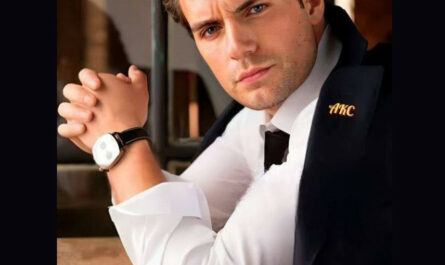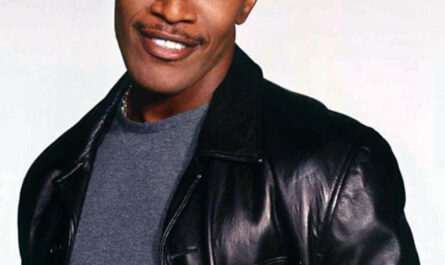Adam Sandler is one of the most recognizable comedic actors and producers in Hollywood. Known for over-the-top humor and outrageous characters in films like Billy Madison, Happy Gilmore, and The Waterboy, Sandler has built an impressive career over the last three decades. However, most fans don’t know that behind his humorous persona, Sandler has faced some major struggles throughout his rise to fame.
In the late 1990s, at the height of his early success, Sandler hit a slump both professionally and personally that nearly derailed his career. A string of poorly received films left him strapped for cash and lacking direction. At his lowest point, he considered walking away from acting altogether. However, one bold creative risk would change everything – his starring role in the unconventional romantic drama Punch-Drunk Love.
The Early Highs
Sandler’s quick wit and slapstick talents were evident from an early age growing up in Manchester, New Hampshire. While studying at New York University in the late 1980s, he began performing stand-up comedy in local clubs. His unique brand of physical humor and absurd songs soon earned him a spot as a writer and cast member on MTV’s game show Remote Control.
In the early 1990s, Sandler landed a job as a writer and regular performer on Saturday Night Live. His outrageous characters like Opera Man and Cajun Man became recurring bits on the show, bringing Sandler nationwide fame.
After leaving SNL in 1995, Sandler dove into the world of feature films. His first major starring role was in Billy Madison, where he played an aimless heir forced to repeat grades 1-12 in order to inherit his father’s hotel empire. The juvenile, over-the-top comedy was a surprise hit, grossing over $25 million at the box office.
Sandler’s fame skyrocketed with his next film, Happy Gilmore. As a failed hockey player turned unlikely golf pro, Sandler delivered quotable line after line of absurd humor. Audiences couldn’t get enough of the vulgar yet lovable “Sandman,” propelling Happy Gilmore to earn over $40 million.
Meanwhile, Sandler formed his own production company, Happy Madison Productions, giving him more creative control and a share in the profits from his work. His streak continued with The Waterboy, where his character Bobby Boucher became an iconic underdog hero. At this point, Sandler could do no wrong, consistently churning out successful low-brow comedies. He was at the peak of his career, both financially and popularly. Unfortunately, it wouldn’t last long.
The Downfall
In the late 1990s, Sandler experienced a sharp decline both professionally and personally. His esteemed brand of humor suddenly fell out of public favor. His first misstep was the animated film Eight Crazy Nights, co-produced by Happy Madison Productions in 2002. Hoping to create a new holiday classic, it was instead panned by critics and families as mean-spirited and juvenile.
He followed it up with a string of equally poorly received films: Mr. Deeds, Little Nicky, Anger Management, 50 First Dates, and more. While some of these films had their comedic moments, most were lambasted for repetitive low-brow jokes and their sophomoric “Frat Pack” energy. After the failure of 2004’s Spanglish, five major studios turned down his next proposed project, refusing to work with the formerly beloved star.
By the mid-2000s, Sandler was no longer a major draw at the box office. Longtime fans had moved on, while newcomers saw his brand of humor as outdated. Movie reviewers, once enamored with his unique comedic voice, now labeled his work as “toxic” and “inane.”
Behind the scenes, Sandler was also dealing with an unraveling personal life. While filming the 2004 romantic comedy 50 First Dates, he began an on-set affair with his co-star Drew Barrymore. At the time, he was married to his wife Jacqueline, with whom he had two young daughters. The affair ended his marriage and left him depressed about the direction of his life.
Professionally floundering and emotionally unstable, Sandler considered walking away from acting altogether. He even confided in friends that he was losing his passion for comedy. It seemed the goofy “Sandman” so many had come to love was gone for good.
The Critical Rebirth
In 2002, acclaimed director Paul Thomas Anderson was looking to cast the lead in his next film, a dark romantic comedy called Punch-Drunk Love. The project was a major departure for Anderson, known for weighty dramas like Boogie Nights and Magnolia. Against all odds, he wanted Sandler for the challenging role.
Anderson had to convince a skeptical Sandler to meet with him. Sandler assumed Anderson wanted him for a flashy cameo, not as the starring lead. However, Anderson saw untapped potential in Sandler’s acting abilities. In their first meeting, he praised Sandler’s raw emotion and vulnerability in his early comedic work. Anderson was confident Sandler could tap into his serious side for this off-beat romantic role.
While intrigued, Sandler remained unsure about taking on such an unconventional part. He was accustomed to over-the-top characters and brainless slapstick, not subtle, melancholic romance. Plus, at this point in his career, he was wary of risky departures from his brand.
However, the project’s sheer originality appealed to Sandler. The film focused on a lonely small business owner named Barry Egan, who gets wrapped up in a convoluted phone sex scheme after pursuing a mysterious woman named Lena. Darkly funny with intense bursts of violence, it was a complex character study. Sandler wanted the challenge of bringing Barry’s eccentricities and anger issues to life.
Also, despite his string of recent flops, Sandler still had enough clout to secure final approval of Punch-Drunk Love’s filming schedule. Working with Anderson meant more time at home, a welcome change for the actor after years of nonstop productions.
In the end, Anderson’s passion won over Sandler. He signed onto the unconventional indie film, convinced it was just the project to revitalize his stale creative energies.
Fulfilling the Vision
Though initially hesitant, once attached to Punch-Drunk Love, Sandler was determined to fulfill Anderson’s vision. The director wanted raw, intense emotion from Sandler, not broad comedy. Channeling skills from his early days as a dramatic actor at NYU, Sandler devoted himself fully to the off-kilter character of Barry Egan.
Anderson pushed Sandler well outside his comfort zone during filming. There was no room for improvisation or falling back on silly voices and mannerisms. Shooting was fast-paced with very long, tracking shots that required immense focus. Sandler rose to the challenge, delivering a memorably explosive performance.
He evoked Barry’s loneliness through subtle gestures and stifled reactions. In emotionally charged scenes, like arguing with his cruel sisters or pleading for Lena’s affection, Sandler unlocked new layers of sensitivity and fragility.
Critics were shocked at his dramatic range and nuance as the volatile, sympathetic antihero. It was a side of Sandler no one had ever seen before. Audiences were equally impressed, validating Anderson’s instinct that Sandler’s talents extended far beyond juvenile humor.
Though Punch-Drunk Love underwhelmed commercially, grossing only $25 million, it was a critical smash hit. Sandler’s performance was hailed as a revelation, proving his skills as a serious actor. Roger Ebert declared Punch-Drunk Love “the best Sandler film ever made” and it earned him his only Golden Globe nomination to date.
For Sandler, Punch-Drunk Love marked a creative rebirth. Re-invigorated, he began pursuing more risky, avant-garde projects that showcased his range. He followed it up with dark comedies like Spanglish and Reign Over Me, earning praise for his nuanced portrayals of complicated characters.
He also formed new partnerships with indie filmmakers like Noah Baumbach, starring in Baumbach’s critically acclaimed The Meyerowitz Stories in 2017. Speaking on his time with Sandler, Baumbach remarked, “I saw a whole other side to Sandler…he’s remarkably open as an actor.”
Off-screen, Punch-Drunk Love also gave Sandler stability in his personal life. On set, he kindled a relationship with model-turned-actress Jacqueline Titone. Titone had a minor role in the film as a waitress. After Sandler finalized his divorce, the two married in 2003. They went on to have two daughters and firmly established Sandler’s home life off-camera.
Punch-Drunk Love’s Redemptive Impact
It’s rare for an established actor to make such a sharp U-turn late in his career. But by embracing vulnerability in Punch-Drunk Love, Sandler engineered a remarkable late-career evolution at the age of 36.
After years churning outhollow comedies as a one-trick pony, Sandler demonstrated real acting chops. Directors who previously dismissed him as a sophomoric buffoon were now praising his range and subtlety.
Without Punch-Drunk Love, Sandler may well have petered out as a washed-up 90s relic. However, Anderson’s passion project became Sandler’s passion project, restoring his creative spark.
In subsequent interviews, Sandler has been very candid about mistakes made during his early career slump. He admits the repetitive juvenile humor and unchecked ego of those films was damaging. Punch-Drunk Love realigned him closer to his dramatic roots and he has since prioritized more meaningful films.
Now in his fifties, Sandler mixes crowd-pleasing comedies like Grown Ups with acclaimed indies like The Meyerowitz Stories and Uncut Gems. He has leveraged his clout at Netflix to produce more prestige films via his Happy Madison Productions company. Having rediscovered his passion, Sandler shows no signs of slowing down.
Off-screen, Punch-Drunk Love also redeemed Sandler as a family man. After rebuilding his home life with wife Jackie, their two daughters have kept Sandler grounded. He takes long breaks between films to spend time with family, often bringing his daughters on location when shooting.
Considering the lows that preceded it, Punch-Drunk Love arrived at the perfect moment in Sandler’s career. It jolted him out of a period of creative stagnation that could have permanently damaged his prospects. By embracing risk later in his career, Sandler found renewed purpose and integrity.
Two decades later, Punch-Drunk Love’s influence still reverberates in Sandler’s eclectic filmography. Though not his most commercially successful film, it was undoubtedly his most important. For an artist struggling to stay afloat, one bold leap of faith changed everything.



